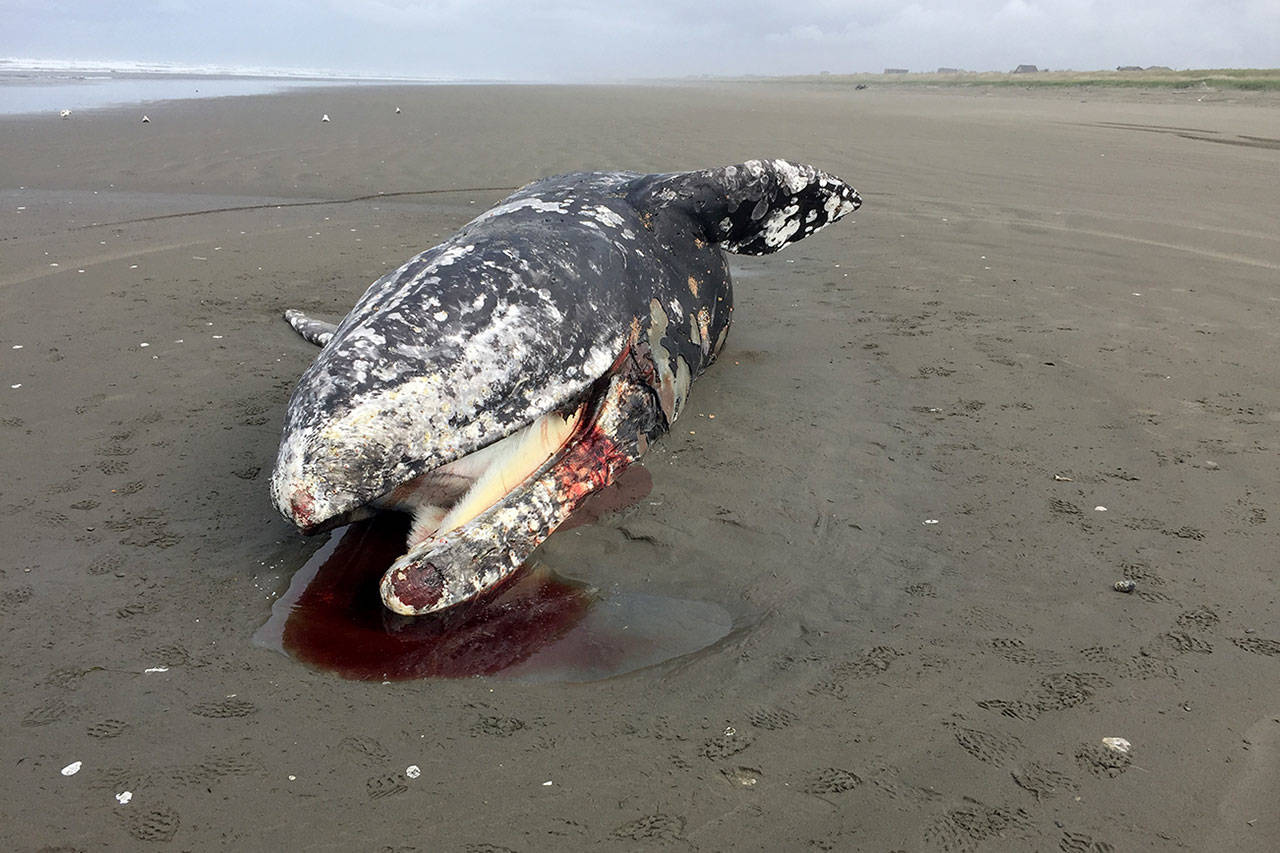A female juvenile gray whale that washed ashore at Twin Harbors State Park on Tuesday will be left to decompose naturally, according to sources at the Washington State Parks and Recreation Commission.
“It would be too expensive to remove the whale, so we’ve decided to let it decompose naturally,” said Toni Droscher at the Washington State Parks Commission.
The whale, estimated to be between 1 and 2 years old and measuring about 30 feet long, appeared to have suffered some kind of traumatic injury. Jessie Huggins, whale stranding coordinator for Cascadia Research, who performed a necropsy on the whale Wednesday, said the whale appeared to be healthy and what caused the death is still unknown.
Visitors using the beach can expect strong, unpleasant smells as the carcass rots over the summer months. Fortunately, the whale’s body lies in the intertidal area, where crabs can eat it at high tide, birds can feast on it at low tide and coyotes can come in at night to feed on it, helping to speed up the process.
The part of the beach where the whale washed up is in the Washington State Seashore Conservation Area, which State Parks manages. The area extends along most of Washington’s outer coastline, excluding tribal reservation and National Park lands, and includes the areas between Cape Disappointment and Leadbetter Point; between Toke Point and the South jetty on Point Chehalis; and between Damon Point and Moclips.
State Parks advises anyone who wants to view the whale to do so from a safe distance, and to keep dogs leashed and clear of the area. And don’t be tempted to take a souvenir; all marine mammals — including dead ones — are protected by the Marine Mammal Protection Act.
If you do find any whales, seals or other marine life washed up on the coast — dead or alive, please report it to the West Coast Marine Mammal Stranding Hotline at 1-866-767-6114.


